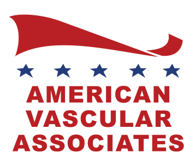Unveiling the Truth About Veins: Three Common Myths Concerning Diet and Disease
With a vast amount of information spread across the internet, it can be easy for patients to find the answer to just about any medical question that piques their interest. And while this may relieve some stress — especially concerning worrisome symptoms or vein disease treatment — access to a wide variety of thoughts and opinions also leaves room for misleading information to come into the picture.
As a physician, this leaves you to clean up the mess as you try to talk a patient down from an inaccurate self-diagnosis. Aside from that, there can be a lot of controversy when it comes to prevention and treatment methods for venous diseases, making it critical that your patients are aware of the correlation between their lifestyle choices and overall health.
That said, we’ve put together a short list of the top three myths concerning diet and vein disease you may want to warn your patients of next time they’re searching the web.
“Varicose Veins Are Hereditary and Therefore Unpreventable”
According to a 2012 study performed by the American Heart Association (AHA), there is a strong association between varicose veins and family history. However, while you may be aware that other factors, including diet, can also play a role in the prevention of venous diseases, your patients may be misled to think varicose veins are unpreventable.
Encouraging patients to include more fruits and vegetables and less saturated fats or salts in their meal plans can be beneficial in preventing varicose veins, especially if they have a family history of venous disease.
In fact, according to the Society for Vascular Surgeons, a Mediterranean diet, which incorporates healthy fats and plant-based meals, could drastically improve one’s vascular health.
“You Should Cut All Dietary Fat Out Of Your Diet to Improve Vascular Health”
Maybe a patient has come to you with a diet plan for preventing vascular disease and, while fruits and vegetables are on the list, dietary fats didn’t make the cut. This might be more common than previously thought, considering that a low-fat diet is often recommended for patients who are at risk of developing a venous disease.
The missing piece, however, is the lack of differentiation between saturated and unsaturated fats when talking about diet plans.
While saturated fats raise cholesterol levels, thereby impacting vascular health, unsaturated fats are known to lower these levels. Confirming that patients are aware of the different types of fat could help them avoid unnecessary limitations to their diet and further prevent unwanted venous disease.
“You Can Cure Vein Disease With a Healthy Diet”
While it may seem a little contradictory to the first myth, you might want to ensure your patients aren’t confusing prevention methods and treatment plans — especially considering that once symptoms of venous insufficiency begin, oftentimes no amount of diet changes are going to stop the disease progression entirely.
Take the time to share symptoms of venous diseases with patients, such as leg swelling, skin discoloration, and bulging veins. That way, they can determine when treatment is needed, thereby giving you more time to manage any blockages before the problem worsens.
We know that ensuring patients are equipped with the proper knowledge to manage their health is your top priority. However, sometimes managing a practice comes with a flood of other responsibilities such as marketing and branding, center or revenue cycle management, site development, and more.
You shouldn’t have to choose between patients and other responsibilities. Thus, American Vascular Association (AVA) has made it our mission to provide you with the development and management services you need to expand your practice, improve office efficiency, and enhance the patient experience.
Our organization provides a comprehensive list of business management services that will allow you to put your patients first and feel relief from the burden of other duties. Give your patients the attention they deserve and join the AVA network by calling 877-685-3281 today!




